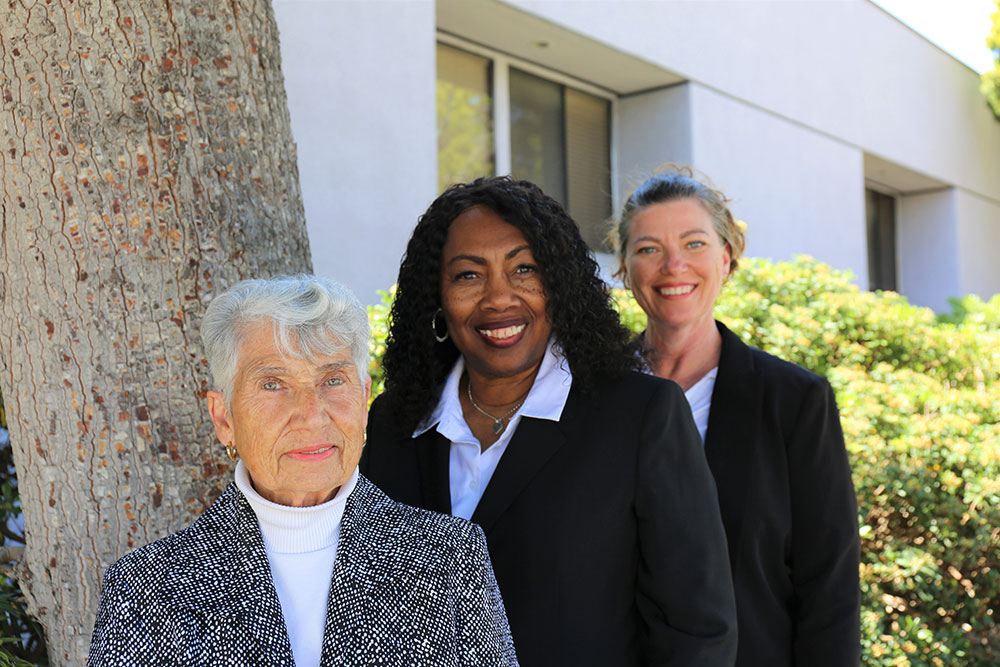St. Paul’s Seniors Services (SPSS) is embarking on a transformational journey to elevate clinical practices. The result will be “best in class” care for seniors at all of St. Paul’s communities and programs, including St. Paul’s Program of All-inclusive Care for the Elderly (PACE), which combines care for over 1,300 seniors with skilled medical conditions. “Our goal is simple,” says Corporate Nurse Karen Mitchell-Keels, “We are taking nursing practice and senior care to the next level by standardizing clinical education and training for all caregivers, resulting in the best possible resident or participant experience.”

The St. Paul’s Clinical Nurse Excellence Team (CNET), led by Mitchell-Keels, also includes two Clinical Nurse Educators who will support and educate frontline nurses and standardize nursing practice.
Mitchell-Keels says, “Nurses and caregivers must have the tools and training to provide the quality care our residents expect and deserve. St. Paul’s is committed to new innovative programs that promote clinical skill development and encourages nurses to work at the top of their license.”
Establishing a Nursing Professional Practice Council (NPPC) signals the growth and advancement of SPSS’s nursing culture. The council empowers nurses to participate in leading clinical practice changes and quality improvement actively.
Licensed nurses meet monthly to discuss solutions to clinical concerns, nursing practice initiatives, and policy and procedure development. President and CEO of SPSS, Michael McHale, comments, “The council is exactly what is needed to ensure the highest standards of care and consistency for our growing population.”
One of the programs Mitchell-Keels is incorporating is the nationwide Nurses Improving Care for Health System Elders (NICHE). NICHE is an evidence-based program that imparts principles and resources to stimulate change in clinical practice and achieve “person-centered” senior care.
This online educational program fosters evidence-based clinical interventions, promotes frontline nurses as leaders, and enhances knowledge and skills for staff, residents, and families. Mitchell-Keels states, “We have a unique opportunity to create a stimulating clinical culture that rivals many of our neighboring healthcare systems.” Achieving NICHE accreditation adds value to SPSS’s reputation, advances staff development, and improves resident/participant outcomes.
Another nationwide model St. Paul’s will incorporate is the “Age-Friendly” Health System (AFHS). In 2016, the John Hartford Foundation and the Institute for Healthcare Improvement (IHI) set out to improve care for older adults nationwide. As a result, the age-friendly care model emerged. Over the next several months, SPSS will integrate the AFHS framework into the existing care practices.
The AFHS framework consists of four core features known as the “4Ms”: What Matters, Medication, Mentation, and Mobility, identifying the core needs of older adults that drive healthcare decision-making. This framework aims to improve healthcare outcomes for older persons, reduce waste, and increase the utilization of cost-effective, high-value services.
The successful implementation of AFHS will involve engagement from all the SPSS communities and disciplines, including social workers, nurses, physical therapists, and physicians.
As a result of these initiatives, St. Paul’s will be well on the road to providing best-in-class care to the seniors of San Diego. The planning phase of this program will begin in June, 2023.